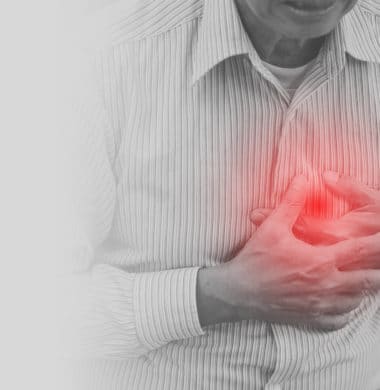Foods to Avoid if You Have Heart Palpitations

Heart palpitations can be very worrying. They feel serious, and they can trigger anxiety about your heart health. The good news is that heart palpitations are usually harmless. The bad news is that it’s not always easy to tell when they’re harmless or when they’re serious.
It’s a good idea to avoid foods that are going to cause heart palpitations. This can help reduce the number of palpitations you experience, which can help you distinguish between occasional, harmless palpitations and those that might indicate a more serious condition. Plus, cutting out certain foods can reduce your risk of developing heart arrhythmias. Heart arrhythmias can lead to dangerous complications.
Avoid Foods That Cause Palpitations
If you are experiencing worrying heart palpitations, it’s a good idea to avoid foods that cause palpitations. Some of the most common foods that lead to palpitations include:
- Caffeine
- Alcohol
- Sugar and carbs
- Foods with tyramine
- Dietary supplements
- Individual food triggers
Many people consume caffeine on a daily basis with their morning coffee or tea. Consuming the equivalent caffeine from one or two cups of coffee is not a concern, but if you are drinking coffee or consuming energy drinks throughout the day, try to cut down to control palpitations. Similarly, alcohol is fine if consumed in moderation (one drink per day for women, up to two per day for men), but excessive consumption is problematic.
Sugary foods can cause your blood pressure to spike, which can trigger heart palpitations. Sugar is mostly a problem if your blood sugar is low when you eat, so if you know you’re hypoglycemic, don’t eat foods high in sugar and carbs right after fasting. Tyramine is a hormone that your body uses to regulate blood pressure, so eating foods that contain it can trigger a spike in blood pressure. Foods high in tyramine include aged cheeses, soy sauce, salami, and sauerkraut.

- Bitter orange
- Ginseng
- Ephedra
- Valerian
- Hawthorn
However, if you experience palpitations or other negative effects after taking any supplement, stop using it and ask your doctor before resuming. Note that purity standards are not high for dietary supplements, and they may include ingredients not on the label.
Shop only the supplement that can make your heart healthy and can also prevent heart attack and other heart diseases! It’s also important to keep a food diary that will help you track your individual response to certain foods. If some foods cause you to develop palpitations, it’s time to avoid them.
Avoid Foods That Increase Arrhythmia Risk
Arrhythmias are when your heart isn’t beating regularly. It might be skipping beats, or the chambers might not be beating according to the optimal sequence. Common heart arrhythmias include atrial fibrillation and premature ventricular contraction.
Many of the foods listed above can contribute to your arrhythmia risk. In particular, foods that contribute to high blood pressure, such as caffeine, alcohol, tyramine, and dietary supplements can also increase your risk of developing arrhythmias.
However, it’s also important to avoid foods that can increase your risk of coronary artery disease. A serious condition in itself, coronary artery disease can also increase your risk of developing heart arrhythmias. This means that you should take steps to lower cholesterol, reduce fat consumption, skip red meats, and other similar steps.
Let South Denver Cardiology Associates Help with Palpitations
If you have changed your diet to avoid specific food triggers, but you’re still experiencing heart palpitations, it might be the sign of serious heart problems. It’s time to talk to a cardiologist to make sure your heart function is normal and healthy. We offer a wide range of diagnostic testing that can help track down problems so you can take steps to keep your heart healthy.
Please call 303-744-1065 or use our online form today to make an appointment with a cardiologist at South Denver Cardiology Associates.
- Arrhythmia vs. Dysrhythmia - July 2, 2024
- Services Offered at Our Transitional Heart Failure Clinic - June 25, 2024
- South Denver Cardiology Offers Pulse Field Ablation to Treat Atrial Fibrillation - June 7, 2024
Sign Up
As with any health concerns, your specific treatment program should be discussed thoroughly with your primary care physician as well as any specialists who may need to be consulted – like a cardiologist.
Sign Up
